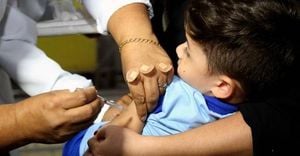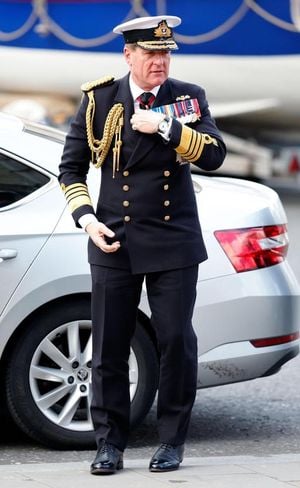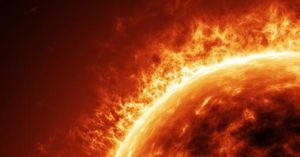The Eurovision Song Contest 2025 is set to take place in Basel, Switzerland, and excitement is building as artists prepare for their performances. Among the standout acts this year is Germany's entry, "Baller," by the Austrian sibling duo Abor & Tynna, who have officially released their music video. The duo, consisting of Attila and Tünde Bornemisza, emerged victorious in Germany's national final, Chefsache ESC 2025 – Wer singt für Deutschland?, capturing 34.9% of the votes. Their victory secures them a spot in the Grand Final on Saturday, May 17, 2025, at St. Jakobshalle in Basel.
In addition to Germany's entry, Ukraine's Jerry Heil is also generating buzz. After previously representing Ukraine alongside Alyona Alyona with their song "Teresa & Maria" in the 68th edition of the contest, Jerry Heil will now perform solo at this year's Eurovison. Fans are eagerly anticipating her performance, and social media is buzzing with excitement.
As the contest approaches, rehearsals are underway. Today, May 10, 2025, marks the second round of rehearsals for the pre-qualified Grand Finalists. Each participating country has a 25-minute slot to fine-tune their performances. Among those rehearsing today are France's Louane with "Maman," Italy's Lucio Corsi with "Volevo essero un duro," Spain's Melody with "Esa diva," Switzerland's Zoë Më with "Voyage," and the United Kingdom's Remember Monday with "What the Hell Just Happened?"
Meanwhile, changes are on the horizon regarding how finalist countries are announced from the semi-finals. A documentary by Swiss broadcaster SRF titled "Der Weg zum ESC 2025" ("The Road to Eurovision 2025") has revealed that during the announcement of finalists, three countries will be represented at once, but only one will be declared a qualifier. This new approach aims to heighten tension and excitement, drawing inspiration from popular television formats like "The X Factor." Eurovision 2025 executive producers Reto Peritz and Moritz Stadler hinted that this change is designed to evoke "more emotions and more tension for the viewers." The new system will be officially tested during the dress rehearsal of the first semi-final on May 12.
This year’s Eurovision returns to Switzerland, the country that hosted the inaugural contest in 1956. As the event approaches, it brings not only musical talent but also political controversy. Several countries, including Slovenia, Spain, Iceland, and Ireland, have voiced concerns regarding Israel's participation, citing ongoing military actions and the blockade in Gaza. Additionally, 72 former Eurovision contestants have signed an open letter calling for Israel's exclusion from the contest.
Despite the political backdrop, the competition promises to showcase a diverse array of musical acts. Notably, this year features the highest number of non-English entries since the language rule was lifted in 1999. Among the entries, Australia’s Go-Jo will perform "Milkshake Man," a playful and catchy tune that has already garnered attention. Ireland's Emmy will present "Laika Party," a whimsical homage to Laika, the Soviet space dog, transforming a tragic historical tale into an uplifting song.
Austria's entry, "Wasted Love," performed by countertenor Johannes Pietsch, known as JJ, aims to capture the audience with its dramatic flair and genre-blending style. The song explores the depths of unrequited love, showcasing JJ's impressive vocal range. Ukraine's Ziferblat will perform "Bird of Pray," a poignant reflection on the toll of war, while Sweden's KAJ will present "Bara Bada Bastu," a lighthearted tribute to sauna culture, promising to bring a fun and quirky vibe to the contest.
In the Netherlands, Claude Kiambe will perform "C'est La Vie," a catchy tune with autobiographical elements that encourages listeners to focus on the brighter side of life. Claude's previous single, "Ladada (Mon Dernier Mot)," has amassed over 57 million streams, setting high expectations for his Eurovision performance.
As the Grand Final approaches, anticipation continues to build. The contest promises to deliver not only a celebration of musical talent but also a platform for political expression and cultural diversity. With its rich history and tradition of showcasing unique performances, Eurovision 2025 is poised to be an unforgettable event.
Fans around the world are tuning in to follow their favorite acts, and social media platforms are buzzing with discussions about the entries and the controversies surrounding the competition. As the artists prepare for their performances, the excitement is palpable, and the stage is set for a remarkable display of talent, creativity, and emotion.






